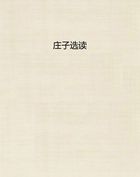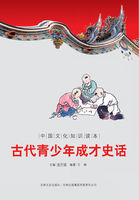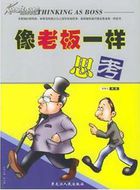These considerations seem alone sufficient to authorize a conclusion, that the Supreme Court would have been an improper substitute for the Senate, as a court of impeachments. There remains a further consideration, which will not a little strengthen this conclusion. It is this: The punishment which may be the consequence of conviction upon impeachment, is not to terminate the chastisement of the offender. After having been sentenced to a prepetual ostracism from the esteem and confidence, and honors and emoluments of his country, he will still be liable to prosecution and punishment in the ordinary course of law.
Would it be proper that the persons who had disposed of his fame, and his most valuable rights as a citizen in one trial, should, in another trial, for the same offense, be also the disposers of his life and his fortune? Would there not be the greatest reason to apprehend, that error, in the first sentence, would be the parent of error in the second sentence? That the strong bias of one decision would be apt to overrule the influence of any new lights which might be brought to vary the complexion of another decision? Those who know anything of human nature, will not hesitate to answer these questions in the affirmative; and will be at no loss to perceive, that by making the same persons judges in both cases, those who might happen to be the objects of prosecution would, in a great measure, be deprived of the double security intended them by a double trial. The loss of life and estate would often be virtually included in a sentence which, in its terms, imported nothing more than dismission from a present, and disqualification for a future, office. It may be said, that the intervention of a jury, in the second instance, would obviate the danger. But juries are frequently influenced by the opinions of judges. They are sometimes induced to find special verdicts, which refer the main question to the decision of the court.
Who would be willing to stake his life and his estate upon the verdict of a jury acting under the auspices of judges who had predetermined his guilt?
Would it have been an improvement of the plan, to have united the Supreme Court with the Senate, in the formation of the court of impeachments? This union would certainly have been attended with several advantages; but would they not have been overbalanced by the signal disadvantage, already stated, arising from the agency of the same judges in the double prosecution to which the offender would be liable? To a certain extent, the benefits of that union will be obtained from making the chief justice of the Supreme Court the president of the court of impeachments, as is proposed to be done in the plan of the convention; while the inconveniences of an entire incorporation of the former into the latter will be substantially avoided. This was perhaps the prudent mean. I forbear to remark upon the additional pretext for clamor against the judiciary, which so considerable an augmentation of its authority would have afforded.
Would it have been desirable to have composed the court for the trial of impeachments, of persons wholly distinct from the other departments of the government? There are weighty arguments, as well against, as in favor of, such a plan. To some minds it will not appear a trivial objection, that it could tend to increase the complexity of the political machine, and to add a new spring to the government, the utility of which would at best be questionable. But an objection which will not be thought by any unworthy of attention, is this: a court formed upon such a plan, would either be attended with a heavy expense, or might in practice be subject to a variety of casualties and inconveniences. It must either consist of permanent officers, stationary at the seat of government, and of course entitled to fixed and regular stipends, or of certain officers of the State governments to be called upon whenever an impeachment was actually depending. It will not be easy to imagine any third mode materially different, which could rationally be proposed. As the court, for reasons already given, ought to be numerous, the first scheme will be reprobated by every man who can compare the extent of the public wants with the means of supplying them.
The second will be espoused with caution by those who will seriously consider the difficulty of collecting men dispersed over the whole Union; the injury to the innocent, from the procrastinated determination of the charges which might be brought against them; the advantage to the guilty, from the opportunities which delay would afford to intrigue and corruption; and in some cases the detriment to the State, from the prolonged inaction of men whose firm and faithful execution of their duty might have exposed them to the persecution of an intemperate or designing majority in the House of Representatives. Though this latter supposition may seem harsh, and might not be likely often to be verified, yet it ought not to be forgotten that the demon of faction will, at certain seasons, extend his sceptre over all numerous bodies of men.
But though one or the other of the substitutes which have been examined, or some other that might be devised, should be thought preferable to the plan in this respect, reported by the convention, it will not follow that the Constitution ought for this reason to be rejected. If mankind were to resolve to agree in no institution of government, until every part of it had been adjusted to the most exact standard of perfection, society would soon become a general scene of anarchy, and the world a desert. Where is the standard of perfection to be found? Who will undertake to unite the discordant opinions of a whole commuity, in the same judgment of it; and to prevail upon one conceited projector to renounce his INFALLIBLE criterion for the FALLIBLE criterion of his more CONCEITED NEIGHBOR? To answer the purpose of the adversaries of the Constitution, they ought to prove, not merely that particular provisions in it are not the best which might have been imagined, but that the plan upon the whole is bad and pernicious.
PUBLIUS
____















